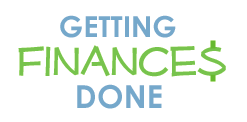Why you shouldn’t trust home mortgage lenders and mortgage calculators – A better way to calculate how much mortgage you can afford
Written by Sam The question of how much of a mortgage you can afford is a tricky question. Make the wrong decision and you will constantly be strapped for the financial resources you need. The fact is, housing is the largest single expense for most people (other than taxes). The size of your mortgage can literally make the difference between financial happiness and financial misery. The term “house poor” means that you have such a high mortgage payment, you can hardly afford your living expenses let alone anything purely for your lifestyle or enjoyment. I prefer to be “house rich” by buying a house that is well below what the bank is willing to loan you. By buying a less expensive house and lowering your monthly payment by up to a few hundred dollars, you can have more than enough money for vacations, grown-up toys or any of the things you value. Rather than struggling to simply buy furniture for your home (without going into debt), you could fully furnish your home pretty quickly and make it suit your taste perfectly.
The question of how much of a mortgage you can afford is a tricky question. Make the wrong decision and you will constantly be strapped for the financial resources you need. The fact is, housing is the largest single expense for most people (other than taxes). The size of your mortgage can literally make the difference between financial happiness and financial misery. The term “house poor” means that you have such a high mortgage payment, you can hardly afford your living expenses let alone anything purely for your lifestyle or enjoyment. I prefer to be “house rich” by buying a house that is well below what the bank is willing to loan you. By buying a less expensive house and lowering your monthly payment by up to a few hundred dollars, you can have more than enough money for vacations, grown-up toys or any of the things you value. Rather than struggling to simply buy furniture for your home (without going into debt), you could fully furnish your home pretty quickly and make it suit your taste perfectly.
We learned this lesson of being “house poor” the hard way. Our home is on the high end of what we really should have purchased. While we can afford the payment and our living expenses with funds to spare, we don’t have much wiggle room. When we had some significant medical expenses a couple years back we were almost forced to move. We still haven’t furnished our home to our taste (partially because of a lack of motivation and partially due to finances). When expenses are normal there’s no problem, but at the first sign of an emergency we really have to plan to make it through. Budgeting and small raises over time have alleviated our tight financial situation quite a bit but I still would have chosen a less expensive house if I started over again. In fact, we’ve considered moving several times and may yet decide to do so.
How to calculate how much mortgage can you afford?
Banks will tell you that you can afford up to 41% of your gross income as debt (sometimes referred to as the front-end ratio) — If you earn $3,000 a month, you can afford to have $1,230 in debt. But trusting this advice is a big mistake. First of all, banks are self-interested. Taking on debt that’s 41% of your income is what the bank feels comfortable lending you, not what you really can afford. Borrowing the full amount that the bank is willing to lend is a sure way to get in over your head. Your situation can be even worse if you make regular charitable contributions. Many people donate 10% of their income as tithing or for charitable causes. This 10% is part of your fixed expense structure and really should be considered more like a debt payment when calculating your total debt load. This also applies to expenses like child support or alimony.
Here’s another, more accurate way of calculating how much house you can afford. Consider it the “altered” front-end ratio.
- Calculate the monthly payment for the loan amount you’re considering.
- Calculate all your expected home expenses including property taxes, insurance, and utilities. If you’re not sure how much they will be, your realtor might now. Even better, ask someone you know living in a comparable house how much their total housing expenses are.
- Calculate the total monthly debt payments you already make.
- Calculate any fixed charitable contributions you consistently make.
- Calculate any other payments that are required every month such as child support or alimony.
- Add all the amounts together and divide the total by your gross income (income before taxes). If the result is less than 41% (.41) you can probably afford the house without being too “house poor.”
Don’t believe what home mortgage lenders tell you that you can afford
Our original mortgage payment (we’ve since paid our mortgage down about $20,000) as a percentage of our gross income is only 24%. By the bank’s definition we could have afforded almost twice the house and mortgage, yet we still felt house poor. When adding in housing expenses and charitable donations this ratio jumps to 37%. Still within 41% recommended above but much closer to the threshold.
If you define 41% as being “right on the edge of what you can comfortably afford”, 37% seems to accurately reflect how I feel about our financial situation – we can afford our house and have a decent amount of disposable income assuming we don’t have significant unexpected expenses. Even with unexpected expenses we can get through since we have total control over our budget. We can even occasionally deal with these emergencies without dipping into our emergency fund. But without total control over our budget, we probably would end up going into consumer debt to go on vacations or pay for emergencies.
What if my ratio is over 41%?
If your altered front-end ratio is only a few percentage points above 41%, you may be ok as long as you get your budget under tight control. That means you know exactly what is coming in and how every dollar of income will be spent before you spend it. You still may want to consider moving or making a dramatic housing change (like we’ve considered doing).
If you are more than 4 or 5 percentage points about 41% you should probably make a dramatic lifestyle change. Typically that means moving to a less expensive home since that is the easiest expense to decrease significantly. You can only squeeze so much out of your grocery budget. Also keep in mind that a cheaper house typically means lower taxes and utilities.
Don’t believe what mortgage calculators tell you that you can afford
Some people might think I’m crazy suggesting this alternative way to determine how much you can afford. I went online and used some mortgage calculators to see how much they said I can afford and their conservative estimates were $500 more than our actual mortgage payment. That’s ridiculous! If people are to ever get out of the debt death spiral, they have to set themselves up to win and one of the main ways to do so is to make sure you can afford your housing.
I would love to hear from GFD readers how they have determined how much house they could afford. Go ahead and calculate your altered ratio and share it with us. Help us calibrate the scale – does 41% seem to be the right threshold according to your experience? Please leave your comments below.
Posted in Debt, Mortgages | 13 Comments »


 Subscribe via email
Subscribe via email  Become a fan
Become a fan Subscribe via RSS
Subscribe via RSS Follow me
Follow me
May 16th, 2007 at 4:10 am
[…] Why you shouldnt trust home mortgage lenders and mortgage calculators – A better way to calculate how much mortgage you can […]
May 17th, 2007 at 3:07 pm
I know that Dave Ramsey recommends a very conservative house payment of no more than 25% of your “net” income . He also advises no more than a 15 year loan.
May 26th, 2007 at 11:11 pm
When my husband and I bought our first home as newlyweds we made a very good combined income and could have afforded quite an expensive house. However we knew that ultimately we wanted me to be a stay-at-home mom so we decided to purchase a house that we could afford with our income cut more than in half. With our first child being born a little over a year after we got married we were soooooo grateful we made that decision.
June 8th, 2007 at 1:01 am
[…] >> Getting Finances Done: Why you shouldn’t trust home mortgage lenders and mortgage calculators << “Banks will tell you that you can afford up to 41% of your gross income as debt (sometimes referred to as the front-end ratio) — If you earn $3,000 a month, you can afford to have $1,230 in debt. But trusting this advice is a big mistake. First of all, banks are self-interested. Taking on debt that’s 41% of your income is what the bank feels comfortable lending you, not what you really can afford. Borrowing the full amount that the bank is willing to lend is a sure way to get in over your head.” […]
June 9th, 2007 at 7:14 am
[…] Getting Finances Done » Why you shouldn’t trust home mortgage lenders and mortgage calculators – A better way to calculate how much mortgage you can afford The size of your mortgage can literally make the difference between financial happiness and financial misery. The term “house poor” means that you have such a high mortgage payment, you can hardly afford your living expenses let alone anything purely (tags: money mortgage) […]
June 10th, 2007 at 8:04 am
While I understand the point of this article is to protect people from getting a loan that they can’t afford, I’m currently in the process of buying a home, and there our good, honest mortgage loan lenders out there. In fact, as I was reading this article, it sounded ver batem of what my mortgage lender told me when I first met with him.
To find a good, honest lendeer, I know some towns have registries of Christian businesses and that would be a great place to start.
June 24th, 2007 at 3:55 pm
As someone with a painful mortgage payment, this is good advice to listen to.
I would just add this: remember how location can change other costs, too – for example:
° a more expensive house closer to work may (partially) pay for itself;
° a house in a more expensive neighborhood may (partially) pay for itself in lower auto insurance rates.
July 29th, 2007 at 6:04 pm
[…] Posted by as Uncategorized Don’t believe what home mortgage lenders tell you that you can afford. Our original mortgage payment (we’ve since paid our mortgage down about $20000) as a percentage of our gross income is only 24%. By the bank’s definition we could … article continues at sjpeer brought to you by loan and insurance […]
August 22nd, 2007 at 10:43 pm
[…] Don’t take out a mortgage for more than 25% of take-home pay (e.g. after taxes, 401k, etc.) – Dave recommends putting down as much as you can on your house. His suggestion to take out a mortgage for no more than 25% of your take-home pay is radical but would save people endless financial headaches if followed. See my earlier post about calculating how much of a mortgage you can afford. […]
August 26th, 2007 at 5:12 am
[…] Don’t believe what home mortgage lenders tell you that you can afford. Our original mortgage payment (we’ve since paid our mortgage down about $20000) as a percentage of our gross income is only 24%. By the bank’s definition we could … …more […]
November 23rd, 2007 at 5:31 pm
There is no reason to think a mortgage lender is always out the scam you or get you to become their customer. How would you feel lending out your money without adjusting for the risks involved?
So trusting your lenders over your bank is a good idea.
Visit: http://www.justwantaquote.com for fast free mortgage quotes online.
April 2nd, 2008 at 5:24 am
[…] http://www.gettingfinancesdone.com/blog/archives/2007/05/why-you-shouldnt-trust-home-mortgage-lenders-and-mortgage-calculators-a-better-way-to-calculate-how-much-mortgage-you-can-afford/ […]
February 6th, 2009 at 6:37 am
Hi,
This is Erica Smith , a webmaster of some quality financial websites having good internet presence and traffic. As I found your website is relevant to my one, I’d like to have you as my link partner. I’m ready to give you some healthy links (both text and banner) from content pages(pr1/2/3) of my websites.
So if you are interested for then feel free to mail or chat with me at ericasmith568(at)gmail(dot)com with your website link details.
Looking forward to your quick reply.
Have a nice day. 🙂
Regards,
Erica
ericasmith568(at)gmail(dot)com